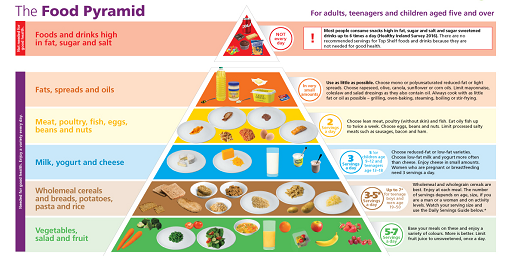When it comes to deciding what food to eat, there are several factors to consider in order to make a well-informed and healthy choice. Whether you are planning your meals for the day or trying to make healthier choices when dining out, it's important to take into account your nutritional needs, personal preferences, and any dietary restrictions you may have. By considering these factors, you can make choices that will nourish your body and contribute to your overall well-being.

One of the first things to consider when deciding what food to eat is your nutritional needs. This includes taking into account the recommended daily intake of essential nutrients such as vitamins, minerals, protein, carbohydrates, and fats. It's important to ensure that your meals provide a balance of these nutrients in order to support your overall health and energy levels. This may involve including a variety of fruits, vegetables, whole grains, lean proteins, and healthy fats in your diet.
In addition to considering your nutritional needs, it's also important to take into account any dietary restrictions or allergies you may have. If you have specific dietary requirements, such as being vegetarian or vegan, or if you have allergies to certain foods, it's important to make choices that align with these restrictions. This may involve seeking out alternative ingredients or recipes that can accommodate your needs, or being mindful of menu options when dining out.
Another important factor to consider when deciding what food to eat is your personal preferences. Everyone has different tastes and preferences when it comes to food, and it's important to choose foods that you enjoy and find satisfying. By selecting foods that you like, you are more likely to stick to your dietary choices and maintain a healthy relationship with food. This may involve experimenting with different recipes and cuisines to find new favorites, or simply choosing familiar foods that you know you enjoy.
When deciding what food to eat, it can also be helpful to consider the context in which you will be eating. For example, if you are planning a meal for a specific occasion or social gathering, you may want to take into account the preferences and dietary needs of others who will be joining you. Similarly, if you are dining out at a restaurant, it's important to consider the menu options available and make choices that align with your nutritional needs and personal preferences.
In addition to these factors, it's also important to be mindful of portion sizes and mindful eating practices. Paying attention to portion sizes can help prevent overeating and support weight management, while practicing mindful eating can help you tune into your body's hunger and fullness cues. By being mindful of these factors, you can make choices that support your overall health and well-being.
Ultimately, deciding what food to eat involves taking into account a variety of factors including nutritional needs, dietary restrictions, personal preferences, and the context in which you will be eating. By considering these factors and making choices that align with your individual needs and values, you can make decisions that support your overall health and well-being. Whether you are planning meals at home or dining out, being mindful of these factors can help you make informed and healthy choices when it comes to deciding what food to eat.





